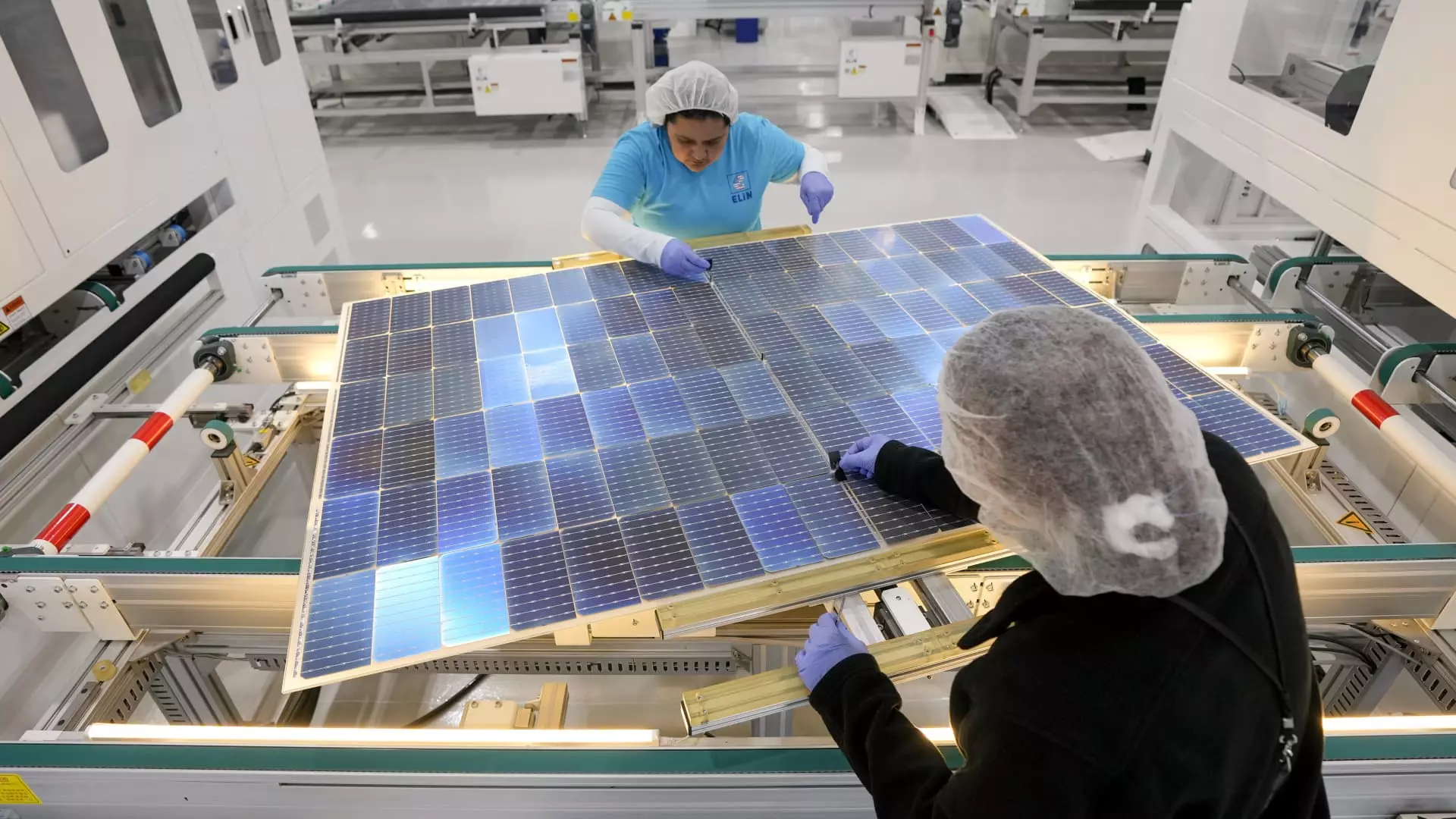The Inflation Reduction Act, signed into law by President Joe Biden in 2022, has led to a surge in manufacturing investments, particularly in clean energy technology and electric vehicle manufacturing. Since the IRA was enacted, companies have announced a total of $133 billion in investments in these sectors, with $89 billion specifically going towards manufacturing projects. This increase represents a 305% jump compared to the two years prior to the IRA coming into effect.
The IRA has had a transformative effect on the manufacturing sector, with a total of half a trillion dollars of investment across various sectors. According to Trevor Houser of the Rhodium Group, the new manufacturing activity spurred by the IRA is unprecedented in recent history. In particular, 271 manufacturing projects focused on clean energy technology and electric vehicles have been announced, promising the creation of more than 100,000 jobs if completed.
One of the significant outcomes of the IRA has been the positive impact on rural communities in the U.S. Unlike investments in other sectors like AI and tech, clean energy investments are mostly concentrated in rural areas. This focus has been a boon for these communities, providing much-needed economic development and employment opportunities.
In addition to boosting manufacturing, the IRA has accelerated the deployment of renewable energy resources. Investments in utility-scale solar and battery storage projects have reached $108 billion, signaling a shift towards cleaner and more sustainable energy sources. The growth rates for investments in solar and battery storage have seen significant increases of 56% and 130%, respectively.
Despite the positive impact of the IRA, there remain challenges and uncertainties. The future of these investments could be influenced by the outcome of the U.S. presidential election. Some investors fear that a Republican victory may weaken or repeal the IRA, leading to a slowdown in clean energy investments. The fragile nature of the “manufacturing renaissance” underscores the importance of policy stability and support for continued growth in this sector.
The IRA has come under scrutiny from former President Donald Trump, who has threatened to dismantle the law in favor of promoting oil, gas, and coal production. The possibility of repealing the IRA and rolling back clean energy incentives could hinder further investments in the sector. Trump’s campaign promises to prioritize traditional energy sources over renewables add a layer of uncertainty to the future of clean energy and manufacturing in the U.S.
The looming uncertainty surrounding the future of clean energy investments has led to market fluctuations and investor concerns. Clean energy stocks tumbled after President Biden’s debate performance, as investors began to fear a potential Republican-controlled government that could reverse the progress made under the IRA. Companies like First Solar have already experienced constraints on access to capital, signaling a cautious approach from investors awaiting clearer policy directions.
Despite the challenges and risks, executives at renewable energy companies and analysts remain optimistic about the resilience of the clean energy sector. Investment, production, and manufacturing tax credits have been key drivers of growth in clean energy technologies and are expected to survive even under a Republican administration. The continued bipartisan support for clean energy investments and the economic benefits they bring to communities across the U.S. bode well for the future of the sector.
The Inflation Reduction Act has played a pivotal role in promoting manufacturing investments, particularly in clean energy technology and electric vehicles. While the future of these investments may face uncertainties depending on the outcome of the U.S. presidential election and potential policy changes, the positive impact of the IRA on rural communities, renewable energy deployment, and job creation cannot be overlooked. Maintaining policy stability and continued support for clean energy initiatives will be essential to sustain and further accelerate the growth of these sectors in the U.S.

